|
|
|
|
|
|
|
|
The Arctic Circle is the largest global gathering on the Arctic. It is attended by heads of state and governments, ministers, members of parliament, officials, experts, scientists, entrepreneurs, business leaders, indigenous representatives, environmentalists, students, activists, and others from the growing international community of partners and participants interested in the future of the Arctic. The Arctic Circle highlights issues and concerns, programs, policies and projects; it provides platforms for dynamic dialogue and constructive cooperation. While the plenary sessions are the responsibility of the Arctic Circle, the breakout sessions are organized by various participating partners in their own name and with full authority over the agenda and the choice of speakers.
Today's Congressional Action:
The House is not in session. The Senate is expected to hold a pro forma session today.
|
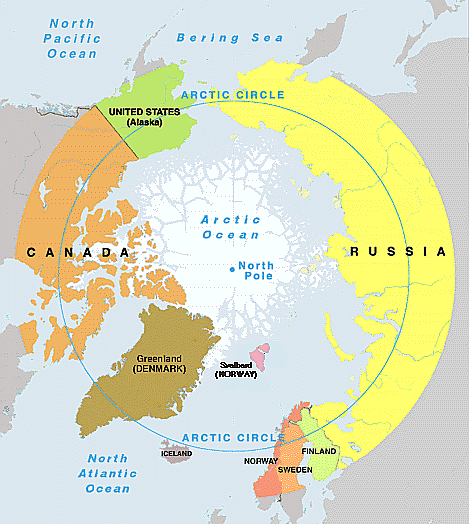 First-of its-kind Survey to Ask Americans: Did You Know US is an Arctic Nation? The top U.S. diplomat representing the nation's Arctic interests says America's lack of knowledge about the region limits the United States from playing a bigger role there. "There's a disconnect," says Robert Papp, the U.S. Special Representative for the Arctic. KUAC First-of its-kind Survey to Ask Americans: Did You Know US is an Arctic Nation? The top U.S. diplomat representing the nation's Arctic interests says America's lack of knowledge about the region limits the United States from playing a bigger role there. "There's a disconnect," says Robert Papp, the U.S. Special Representative for the Arctic. KUAC
UAF's Sustainable Village: A Living Laboratory in the Sub-Arctic. In 2004, researchers with the Cold Climate Housing Research Center were looking to build on the worst land they could find. At the base of the University of Alaska Fairbanks' hilly campus, on the site of an old riverbed, they found it: ground made from silt and fine sediments, laced with permafrost hovering near the edge of thawing. This is the type of land that vexes builders in many parts of Alaska, with its potential to shift and destabilize as it thaws, making for difficult and costly construction projects. Alaska Dispatch News
[Opinion] Exxon's Climate Concealment. Millions of Americans once wanted to smoke. Then they came to understand how deadly tobacco products were. Tragically, that understanding was long delayed because the tobacco industry worked for decades to hide the truth, promoting a message of scientific uncertainty instead. The same thing has happened with climate change, as Inside Climate News, a nonprofit news organization, has been reporting in a series of articles based on internal documents from Exxon Mobil dating from the 1970s and interviews with former company scientists and employees. New York Times
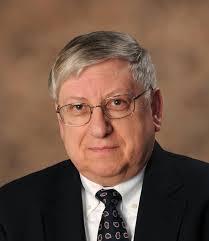 Arctic No Rival Suez, Not This Century, Say Shipping Expert. As the ice retreats, Arctic shipping is expected to increase. But if your idea of "Arctic shipping" is cargo carriers plying a shortcut between Europe and Asia, you may want to choose a different image. It's not so much the thinning ice that will drive up ship traffic in the north. It's the price of oil. Or so says UAF professor Lawson Brigham. "Profound changes in sea ice are not retooling global trade routes. Why? Because the place is ice covered, through the century, for seven and a half months. Partially or fully ice covered," says Brigham, who chaired the Arctic Council's Marine Shipping Assesment. He spoke today at a forum sponsored by Resources for the Future, a Washington, D.C. think tank. Alaska Public Radio Arctic No Rival Suez, Not This Century, Say Shipping Expert. As the ice retreats, Arctic shipping is expected to increase. But if your idea of "Arctic shipping" is cargo carriers plying a shortcut between Europe and Asia, you may want to choose a different image. It's not so much the thinning ice that will drive up ship traffic in the north. It's the price of oil. Or so says UAF professor Lawson Brigham. "Profound changes in sea ice are not retooling global trade routes. Why? Because the place is ice covered, through the century, for seven and a half months. Partially or fully ice covered," says Brigham, who chaired the Arctic Council's Marine Shipping Assesment. He spoke today at a forum sponsored by Resources for the Future, a Washington, D.C. think tank. Alaska Public Radio
Along Alaska's Arctic Coast, Female Whalers are Breaking the 'Ice Ceiling.' For thousands of years, when Inupiat whaling crews hunted bowhead whales, the harpooners were traditionally men -- until this generation, which has already seen three strikes by women. Alaska Natives living along the Arctic coast have historically relied on the whales for food and materials to make tools and equipment. It's a practice essential not just for survival but also for cultural identity. Alaska Dispatch News
Anatomy of an 'Ice Station.' Completing an "Ice Station" means collecting samples over a wide range of Arctic water and ice conditions. Each station means a major orchestration of people and resources. The teams gather, equipment is assembled, and the trek off the ship begins. After the first off-ship exodus, the sample teams are well practiced in moving equipment and setting up work areas so as not to interfere with the other stations. There is no shortage of space so spreading out is not a challenge! Phys.Org
Siberian Scientists Design Drone for Extreme Arctic Climate. Scientists of the Omsk State Technical University have created an unmanned aircraft for the work in the extreme conditions of the Arctic region, head of the university's Experimental Design Bureau Small Unmanned Vehicles Pavel Pogarsky told TASS on Tuesday. "This is the third generation of UAVs, which can operate in temperatures ranging from minus 40 to plus 45 degrees with wind up to 15 meters per second, in rain and snow," Pogarsky said. Its operating range grew to 100 kilometers, flight time is 3,5 hours, flight ceiling is 5,000 meters and speed is 120 kilometers per hour. Russia & India Report
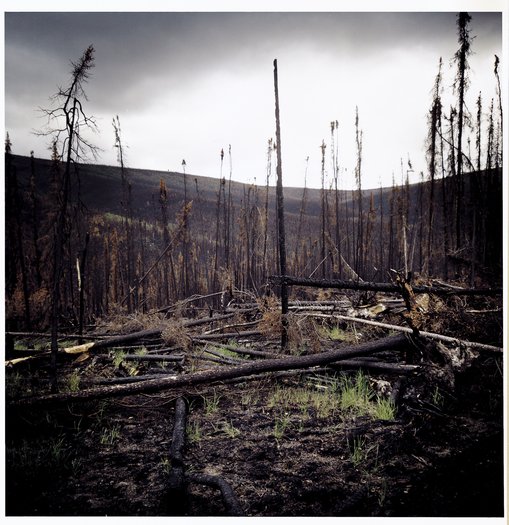 The Rapid and Startling Decline of World's Vast Boreal Forest. The boreal forest wraps around the globe at the top of the Northern Hemisphere in North America and Eurasia. Also known as taiga or snow forest, this landscape is characterized by its long, cold and snowy winters. In North America it extends from the Arctic Circle of northern Canada and Alaska down into the very northern tip of the United States in Idaho, Washington, Montana, and Minnesota. It's the planet's single largest biome and makes up 30 percent of the globe's forest cover. Moose are the largest ungulate in the boreal, adapted with their long legs to wade in its abundant marshes, lakes and rivers eating willows, aspen and other plants. In the southern boreal forest of northern Minnesota, moose were once plentiful, but their population has plummeted. Thirty years ago, in the northwest part of the state, there were some 4,000; they now number about a hundred. In the northeast part, they have dropped from almost 9,000 to 4,300. They've fallen so far, so fast that some groups want them listed as endangered in the Midwest. YaleEnvironment 360 The Rapid and Startling Decline of World's Vast Boreal Forest. The boreal forest wraps around the globe at the top of the Northern Hemisphere in North America and Eurasia. Also known as taiga or snow forest, this landscape is characterized by its long, cold and snowy winters. In North America it extends from the Arctic Circle of northern Canada and Alaska down into the very northern tip of the United States in Idaho, Washington, Montana, and Minnesota. It's the planet's single largest biome and makes up 30 percent of the globe's forest cover. Moose are the largest ungulate in the boreal, adapted with their long legs to wade in its abundant marshes, lakes and rivers eating willows, aspen and other plants. In the southern boreal forest of northern Minnesota, moose were once plentiful, but their population has plummeted. Thirty years ago, in the northwest part of the state, there were some 4,000; they now number about a hundred. In the northeast part, they have dropped from almost 9,000 to 4,300. They've fallen so far, so fast that some groups want them listed as endangered in the Midwest. YaleEnvironment 360
|
Legislative Action
No Arctic legislation was formally considered Friday.
|
|
Future Events
Penn State University will host an afternoon panel of national experts in the Arctic and in US interests in the region. Building on the law of the sea expertise of VADM James Houck (former Navy Judge Advocate General and now Interim Dean of the Law School and School of International Affairs at Penn State) and the knowledge of the changing Arctic environment of RADM David Titley (former head of the Navy's Task Force Climate Change and now professor from practice in the Department of Meteorology), and Fran Ulmer, Chair of the US Arctic Research Commission (keynote speaker), the panel brings together experts in science, law, policy, and Arctic diplomacy. We see these experts individually at events in Washington, but Penn State is doing a great service in bringing them altogether at one event in an region that seldom gets such first hand expertise.
The Polar Oceans and Global Climate Change, November 3-6, 2015 (La Jolla, California USA). The American Polar Society will host this Symposium at Scripps Institution of Oceanography. A flyer with a partial list of presenters is available on the Society's website (americanpolar.org) and from the Society's Membership Chairman by email.
Forum for Arctic Modeling and Observational Synthesis Meeting, November 3-6, 2015 (Cape Cod, MA, USA). On November 3rd, the 2015 School for young scientists will consider "Regional Oceanography of the Arctic marginal seas" with lectures covering major features of atmospheric, sea ice and oceanographic regimes of the: Bering, Chukchi, Beaufort, East-Siberian, Laptev Sea, Kara, Barents and Nordic seas. On November 4-6, the meeting portion will summarize project accomplishments for the last 3 years of activities and will focus on the formulation of scientific questions and directions for FAMOS future research (2016-2019) to: (a) improve Arctic modeling, employing very high resolution models; (b) develop and test new arctic monitoring/observing systems and (c) improve predictions of Arctic environmental parameters with reduced uncertainties.
Due North: Next Generation Arctic Research & Leadership, November 5-8, 2015 (Calgary, Alberta, Canada). The Association of Canadian Universities for Northern Studies (ACUNS) will convene an interdisciplinary conference of early career scientists working on Arctic issues. Topics will include: Arctic Communities, Arctic Sustainable Development, Arctic Wildlife, Ecosystem and Biodiversity, Arctic Food Security, Arctic Landscapes, Climate Change and Adaptation, Disaster Risk Management, Policy, Politics and Leadership, Arctic Environment (Data and Techniques), Arctic Resources, and Future of Arctic.
Matchpoints Seminar, November 12-13, 2015 (Aarhus, Denmark). The purpose of the conference is to provide a forum for policy-makers and academics to deliberate on how the security, resilience and sustainability of the globalized Arctic region and its peoples may be enhanced, and what instruments of governance may most suitably contribute. The conference will spell out (1) how the different relevant dimensions of security (military, economic, environmental, energy and human security) manifest themselves in the governing / governance arrangements in the Arctic; (2) how the challenges associated with each manifest themselves, individually and together; and (3) what forms of governing arrangements can best help to address the challenges. The conference will also focus on (4) how the Nordic countries and nations, including Greenland, the Faroe Islands and Aaland Islands, may contribute to the peace, stability and prosperity of the Arctic region through collaborative efforts based on their shared social, human, environmental and democratic values.
Arctic Observing Open Science Meeting, November 17-19, 2015 (Seattle, Washington). The Arctic Observing Open Science Meeting will be 2.5 days and held at the Hyatt at Olive 8 in Seattle, Washington. The conference will bring together individuals and teams involved in the collection, processing, analysis, and use of observations in the Arctic - from academia, agencies, industry, and other organizations. The meeting will be convened as a combination of plenary talks, parallel science sessions, and a poster session. The agenda and registration information will be forthcoming.
In the Spirit of the Rovaniemi Process 2015, November 24-26, 2015 (Rovaniemi, Lapland, Finland).When the Arctic Environmental Protection Strategy, the so-called Rovaniemi Process, was adopted in 1991, it aimed at overcoming divisions and turning the zone of Cold War military tensions into a region of peace and co-operation. In this joint effort focusing on the protection of environment, and later, sustainable development, the Arctic states supported by indigenous organizations laid grounds for institutionalized collaboration and the emergence of Arctic regional identity. The second international conference will bring together decision-makers, scholars, artists, designers and students to address these questions and discuss the Arctic in global, regional and local perspectives.
Arctic Encounter Paris (AEP 2015), December 11-12, 2015 (Paris, France) (During the UN Convention on Climate Change - COP21). The Arctic Encounter Paris will take place at the French Senate at Luxembourg Palace and the 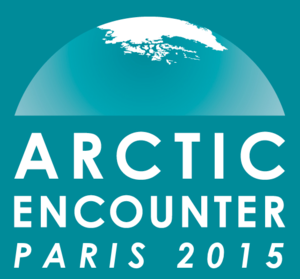 French Military College, École Militaire, in Paris, France, on the final days of the monumental United Nations Convention on Climate Change (COP21) where thousands of global citizens and government delegates will be gathered to deliberate the world's response to our changing planet in Paris. The AEP is the only Arctic policy side event currently planned to take place during the UN Convention. A reception will take place following the closing panel. French Military College, École Militaire, in Paris, France, on the final days of the monumental United Nations Convention on Climate Change (COP21) where thousands of global citizens and government delegates will be gathered to deliberate the world's response to our changing planet in Paris. The AEP is the only Arctic policy side event currently planned to take place during the UN Convention. A reception will take place following the closing panel.
This symposium is part of an ongoing initiative of the National Academies of Science Polar Research Board to expand public understanding of why the dramatic changes affecting the Arctic region ultimately matter to us all. The agenda features engaging presentations and discussions with top Arctic science and policy experts, and displays and interactive exhibits that illustrate Arctic change and its global impacts. The event is free and open to the public. There are sponsorship opportunities, and a call for exhibitor applications (by Oct.31, 2015). Audience space is limited, so register today; and please encourage your friends, neighbors, and colleagues to participate-as our goal is to reach well beyond the small circle of specialists who typically attend Arctic-themed events in the DC area. The U.S. Arctic Research Commission is helping to sponsor this event.
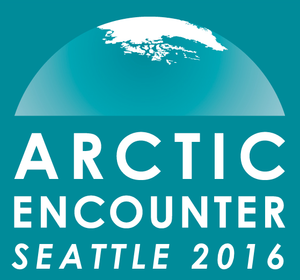 Building upon the preceding Arctic Encounter event in Paris, the third annual Arctic Encounter Symposium (AES) in Seattle, Washington will convene policymakers, industry leaders, and leading experts to confront the leading issues in Arctic policy, innovation, and development. As the largest annual Arctic policy event in the United States, the AES mission is to raise awareness, engage challenges, and develop solutions for the future of a region and a people. The two-day program includes two keynote luncheons, expert plenary sessions, break out sessions, a networking cocktail reception and seated dinner. A closing reception will take place at the conclusion of the program. Building upon the preceding Arctic Encounter event in Paris, the third annual Arctic Encounter Symposium (AES) in Seattle, Washington will convene policymakers, industry leaders, and leading experts to confront the leading issues in Arctic policy, innovation, and development. As the largest annual Arctic policy event in the United States, the AES mission is to raise awareness, engage challenges, and develop solutions for the future of a region and a people. The two-day program includes two keynote luncheons, expert plenary sessions, break out sessions, a networking cocktail reception and seated dinner. A closing reception will take place at the conclusion of the program.
|
|

  
4350 N. Fairfax Drive, Suite 510
Arlington, VA 22203, USA
External links in this publication, and on the USARC's World Wide Web site ( www.arctic.gov) do not constitute endorsement by the US Arctic Research Commission of external Web sites or the information, products or services contained therein. For other than authorized activities, the USARC does not exercise any editorial control over the information you may find at these locations. These links are provided consistent with the stated purpose of this newsletter and the USARC Web site.
|
|
|
|
|
|
|
|
|